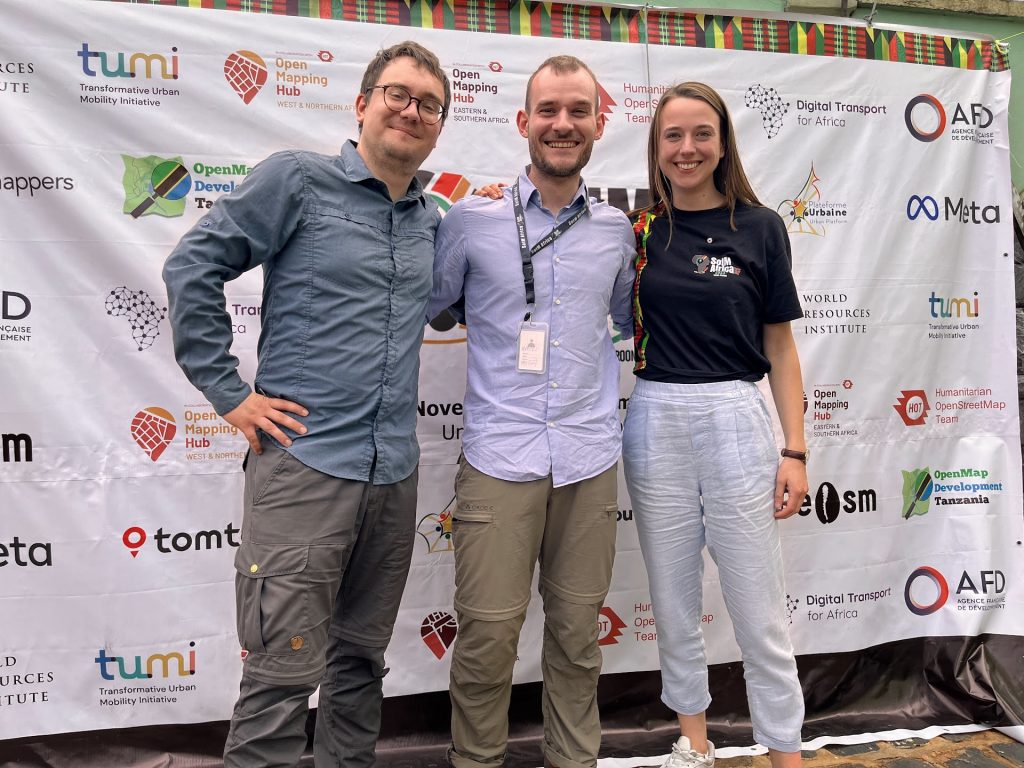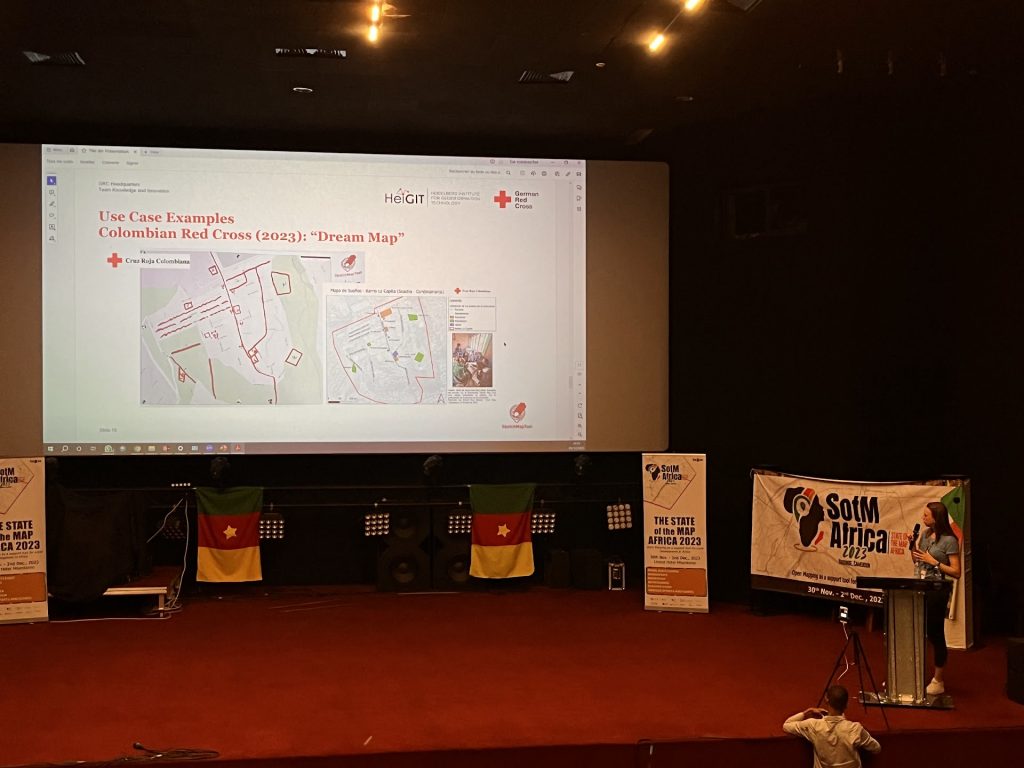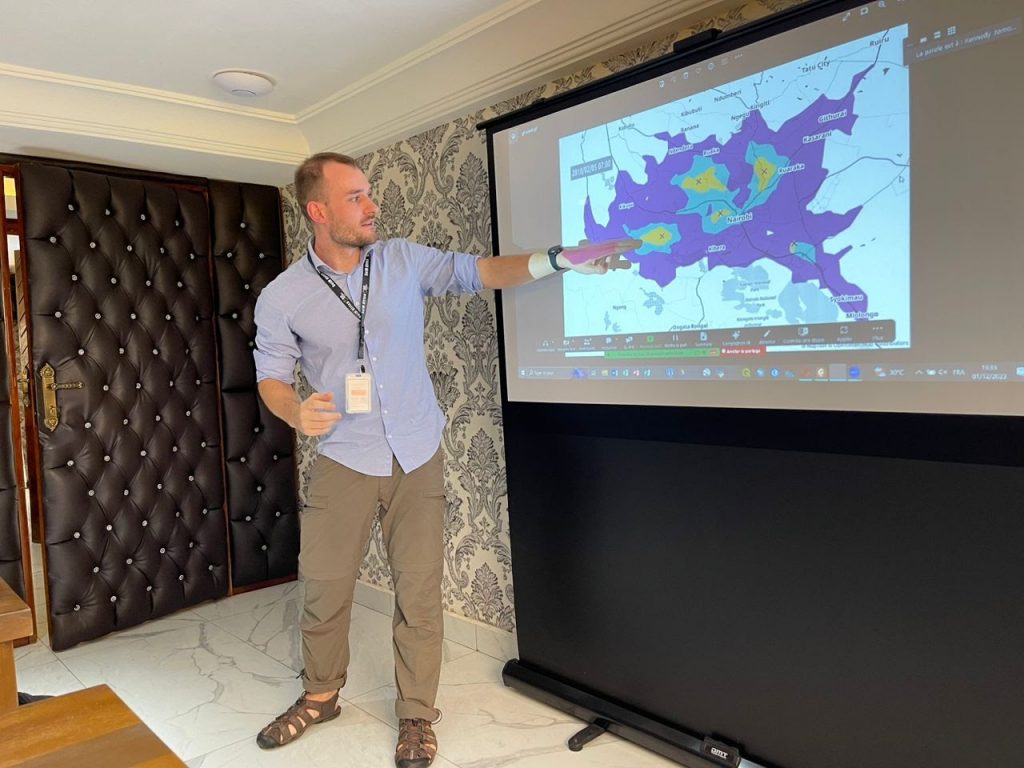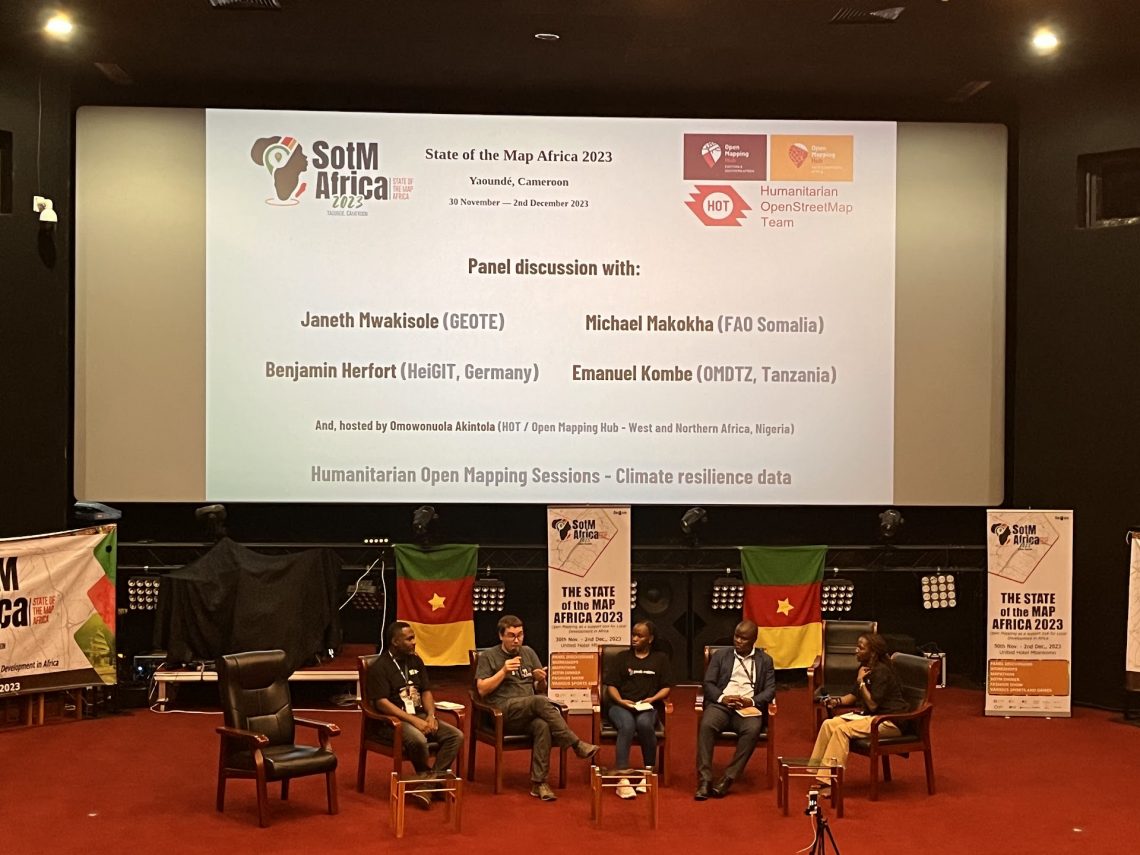The recently concluded State of the Map Africa 2023, hosted in Yaoundé, Cameroon, marked the fourth edition of this regional OpenStreetMap (OSM) conference. The State of the Map was a great opportunity to get to know the people who are at the center of building open mapping communities in African countries. For the first time in its history the conference was sponsored not entirely by global companies or international NGOs, but also received support from an local organisation – Open Map Development Tanzania (OMDTZ). This financial support is key so that many community members from all over Africa can join the conference in person.
As an organization passionate about OSM, HeiGIT was actively involved in the conference, contributing insightful talks, workshops, and participating in thought-provoking panels.
- Talk: Towards Harnessing OpenStreetMap for Climate Action: This session explored the intersection of OpenStreetMap and climate action, shedding light on the potential of OSM data in addressing climate-related challenges.
- Workshop: Data Meets People – Understanding OSM Community Activity: HeiGIT organized an interactive workshop aimed at dissecting OpenStreetMap community dynamics, emphasizing the crucial role of data in driving community engagement.
- Lightning Talk: History-Based Quality Measures of OpenStreetMap in the Ohsome Dashboard: The lightning talk highlighted HeiGIT’s efforts in developing quality measures for OpenStreetMap data, now accessible through the Ohsome dashboard.
- Talk: Traffic-Aware Isochrone Methods – Accessibility Analysis for Nairobi, Kenya: HeiGIT presented groundbreaking research on traffic-aware isochrone methods, demonstrating their application in accessibility analysis for Nairobi, Kenya.
- Talk: Meet the Sketch Map Tool: HeiGIT showcased the Sketch Map Tool, emphasizing its role in participatory mapping and how it can bridge the gap to/from no-tech communities.
HeiGIT actively participated in two engaging panels:
- Innovative Approaches to Solid Waste Management: The panel explored the fusion of GIS, OpenStreetMap data, and community involvement to address challenges in solid waste management.
- Climate Resilience Data: HeiGIT contributed to discussions surrounding climate resilience data, emphasizing the need for validation on the ground and highlighting the role of open mapping in this context.
In general we had the impression that whereas the other regional State of the Map conference in Europe and the US might have been more technical, these editions were also more commercial. In contrast to other State of the Map conferences, the focus of SOTM Africa 2023 was less on topics such as bicycle friendliness or environmentally friendly routing. Instead the focus for SOTM Africa 2023 was on using OSM data for public transport, access to healthcare, waste management, disaster risk management and climate resilience.
The importance of validating global models, services and data sets locally by involving the local population was strongly emphasized. Presentations on travel time estimates and risk assessments underlined the need to scrutinize and validate questionable results. The Sketch Map tool attracted positive attention as it addresses exactly this need. It also received feedback for its ease of use in validating and confronting macro-level risk data with local perceptions, highlighting its potential for improving the accuracy and relevance of geospatial information. Together with our partners at German Red Cross we will make sure to incorporate the feedback we got into our next rounds of technical improvements for the Sketch Map Tool.
These topics resonated well with the focus of the annual Missing Maps gathering which was held upfront SOTM Africa. At the gathering the Missing Maps partner organizations shared their key success stories, but also ongoing challenges to create and use open map data for humanitarian aid and disaster management. Missing Maps was founded in 2014 and OSM has since been used by many humanitarian organizations on a larger scale. Nevertheless, there still is a need for creating the “missing” maps and for promoting the use of OSM data. As several organizations pointed out, remote mapping is only one part of the equation, and engaging local NGOs and community-based stakeholders will be a key goal of Missing Maps in the coming year.
State of the Map Africa 2023 and the Missing Maps gathering provided a rich and diverse platform for discussions, collaborations, and insights into the evolving landscape of OpenStreetMap. HeiGIT’s active involvement and contributions underscored the organization’s commitment to harnessing geoinformation technology for positive societal impact. As the community continues to grow, conferences like these play a pivotal role in shaping the future of open mapping in Africa and beyond. We are already looking forward to the next global State of the Map which will be hosted in Nairobi in September 2024 – for the first time in Africa. 2024 also marks the 10-year-anniversairy for Missing Maps. Stay tuned for news about upcoming celebrations.
Here are a few impressions from the conference:






